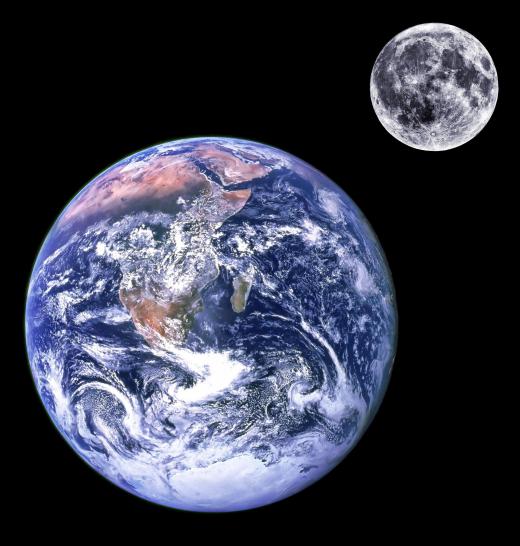What is a Gravitational Field?
Gravity is the force of attraction between all masses. Although gravity is said to be exerted by everything that has a mass, only those objects with very large masses actually affect anything near them. A gravitational field is the area around the body that is exerting the gravitational pull. It can be defined as the gravitational force felt by a unit's mass placed at a point in space.
Gravity has three very important effects. First, it makes all things accelerate towards it. On Earth, acceleration due to gravity is 9.8 meters per second squared. That means that no matter what is falling towards Earth, it will do so with the same acceleration, unless air resistance is taken into account.

Second, gravity gives everything weight. Weight is the force of gravity pulling something toward the Earth. Mass and weight are not the same thing, and mass is used to determine the weight of something. The mass of an object is always the same, but its weight can change based on the strength of the gravitational field. For example, the mass of an object would be the same on the moon as it was on Earth, but its weight would be different due to the different gravitational forces.

Finally, gravity keeps all objects in the solar system in their orbits. An orbit is caused by the balance of the forward motion of the object and the force of gravity pulling it inwards. For example, the orbit of the Earth around the Sun is due to the forward motion of the Earth and the Sun’s gravitational pull on it. The same happens with the moon around the Earth.

The closer one object is to another, the stronger the gravitational field. In the Solar System, planets that are closer to the Sun have a much stronger force of attraction acting on them. To counteract this attraction, they must move around the Sun a lot quicker. A gravitational field decreases very quickly with distance.
The size of the force of gravity follows an inverse square relationship. If the gravity of an object were measured and then it was moved twice as far away from the large object causing the gravitational field, the force of gravity would be reduced by a factor of four. It if were moved three times as far away, the gravitational force would be reduced by a factor of nine, or the square of three. The opposite can be said if the object were moved closer as well, except gravity would be increased instead of being reduced.
AS FEATURED ON:
AS FEATURED ON:















Discussion Comments
@pleonasm - You still have to give people credit for the work they did hundreds of years ago in developing gravitational theory.
I actually find it quite fascinating to read about the alternative theories that some people had to the ones that eventually were shown to be accurate.
@Iluviaporos - Well, to some extent I think it's just too big for us. It's not something that we can stand outside and look at, because it's constantly around us. The same way that old proverb goes about the old fish commenting to some young fish about how's the water today? And the younger fish not understanding what water actually is.
Gravity fields are such a constant it took us thousands of years to even recognize that they are a thing. There are early science fiction novels which don't factor in the fact that people are weightless in space, simply because it didn't occur to them that a lack of gravity could happen.
This knowledge is something we take for granted now, but it's still a relatively new concept. Maybe one day we will be able to take that extra step back and see the big picture, but we aren't there yet.
I find it so amazing that, while we understand how gravity works to some extent, we still don't really know where it comes from or why it works the way it does. Yet, it is one of the most important forces in the universe, at least from our perspective.
Without gravitational energy, we wouldn't have a planet, because the matter that makes up Earth would go flying away with nothing to hold it together. It also wouldn't orbit the sun, so we wouldn't have the day and the seasons the way we do.
It's just incredible that it's such an important thing and we don't understand where it comes from.
Post your comments